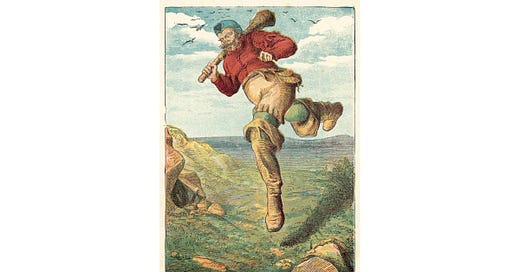When someone flies through the world in seven-league boots, from Bohemian to Thuringian forests, it takes real effort to catch hold of him or even to brush the very tip of his coat. May he not take offense at that. And so it’s now too late for Ilmenau. But in Weimar—could there, after all, be an intention behind it?—a letter will be waiting for you, crammed with strange things that, by lying so long in that place, grow all the richer and finer. Let us hope so,
Your Franz
Liboch: Czech: Liběchov. Located about 30 km north of Prague on the Elbe River, Liboch was a popular destination for excursions and summer vacations.
“And so it’s now too late for Ilmenau. But in Weimar…a letter will be waiting for you”: Kafka wrote this postcard to his friend, who had traveled “from Bohemian to Thuringian forests,” apparently addressing it poste restante to one of the planned stops on his journey.
Oskar Pollak: (b. Prague, 5 September 1883–d. Austrian-Italian front on the Isonzo, 11 June 1915) Oskar Pollak was a classmate of Kafka’s at the Altstädter Gymnasium. After completing his secondary education, he initially pursued studies in chemistry, later switching to philosophy and archeology, and ultimately to art history at Charles University. At the beginning of his studies, he joined the Lese- und Redehalle der deutschen Studenten (Reading and Lecture Hall of German Students), as did Kafka, whose closest friend he was during these early university years. In the summer semester of 1903 and in the winter semester of 1903–1904, Pollak served as art correspondent for the literary section of the organization. When he took a position as a private tutor at Oberstudenetz Castle at Zdiretz (Ždírec nad Doubravou) in the fall of 1903, Kafka succeeded him in this role. Pollak earned his doctorate in 1907 with a dissertation on the Baroque sculptors Johann and Ferdinand Maximilian Brokoff. That same year, he married Hedwig Eisner in Prague. Pollak authored numerous studies on art history, focusing primarily on the Renaissance and Baroque periods. From 1910 to 1913, he worked first as an assistant and, after completing his postdoctoral qualification, as a lecturer in art history at the University of Vienna. When he was offered the position of art history secretary at the Austrian Historical Institute in Rome, Pollak left Vienna and moved to Italy with his wife. With the outbreak of the First World War, Pollak volunteered for military service. He died on June 11, 1915, on the Austrian-Italian front during the early Battles of the Isonzo in Friuli.
English Translation Copyright © 2024 Ross Benjamin
This translation is based on Franz Kafka: Briefe. Kommentierte Ausgabe. Herausgegeben von Hans-Gerd Koch © S. Fischer Verlag GmbH, Frankfurt am Main 1999.




This postcard can be read as a poem, the way it flows and condenses.